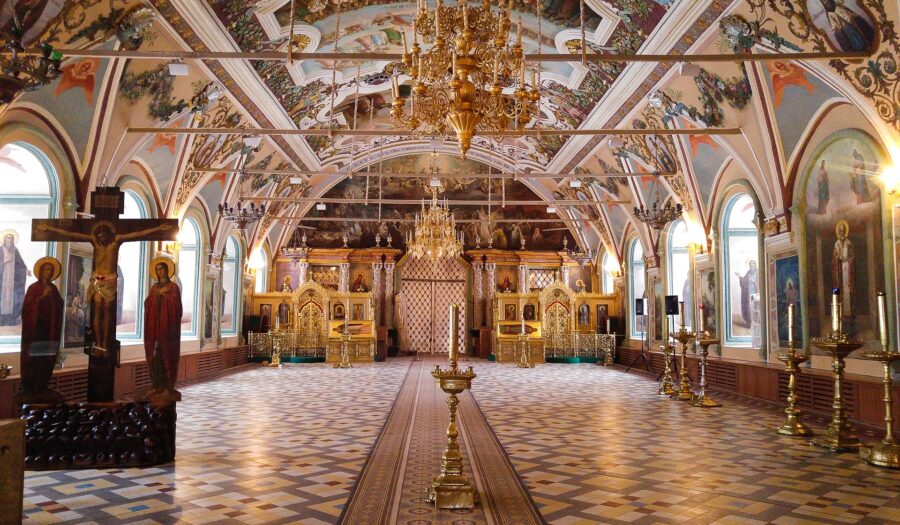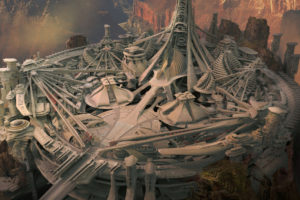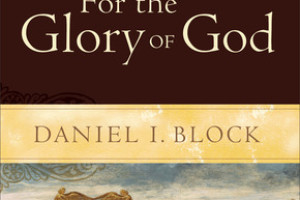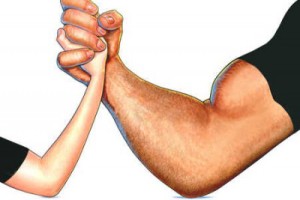Many years ago when I was new to biblical faith and largely unaware of other belief systems outside of my own (or at least of the couple congregations I had attended), I met a co-worker who described himself as ‘Eastern Orthodox’. At the time I met him I had been a Christian for only a couple years. I was an Agnostic up until my twenties and I was inexperienced with various religions or versions of Christianity. Furthermore, when we met I had recently ceased attending a mainstream church and began describing myself as ‘Messianic’ as I was also attending various Messianic [and similar] congregations. As a result, ‘Eastern Orthodoxy’ was very foreign to me and even at odds with much of what I thought at the time. “What is Orthodoxy?” I initially thought. I learned that ‘ortho-’ means ‘straight’ or ‘correct’ and ‘-dox’ means ‘teaching’ or ‘doctrine’, so ‘orthodoxy’ refers to ‘straight teaching’ or ‘correct doctrine’. Typically, speaking of ‘orthodoxy’ with a lowercase ‘o’ simply refers to what has historically been agreed upon (more or less) as correct (perhaps nonnegotiable) teachings of Christianity. Speaking of ‘Orthodoxy’ with a capital ‘O’, however, tends to refer to a specific identifiable entity—the ‘Eastern’ or ‘Greek’ Orthodox Church or Orthodox Christianity. Some have said that a general measure of orthodoxy (again, little ‘o’) is gauged by the Seven Ecumenical Councils within the first eight centuries of Christianity (see below for further resources).1 That is, Christians of various backgrounds—Eastern Orthodox, Roman Catholic, Protestants—can be defined as ‘orthodox’ as a result of doctrinal agreement on these councils. This, however, is questionable especially since many protestant Christians do not entirely adhere to rulings of these councils or view them the same way as most Orthodox Christians. Among Orthodox, Catholics, and Protestants, views can differ regarding the inspiration of the Councils or certain details (the later addition of the Filioque, for instance). Protestant Christians do not tend to embrace the rulings of the Seventh Council (also called the Second Council of Nicaea), and ironically often preach messages in favour of the very issue that council sought to deny—Iconoclasm. Instead, ‘orthodoxy’ better refers to indisputable beliefs or matters agreed upon by these groups despite nuances or differences of theological meanings or implications, such as the virgin birth and bodily resurrection of Jesus. Trinitarianism could perhaps be included in this definition, but one soon discovers differing particularities between groups.
Nevertheless, my Orthodox co-worker and I met on occasion along with our respective friends for conversations. Sometimes these conversations edged towards inimicality, but this assuredly a result of passion. My friends and I were intrigued by their perspectives and interpretations as they were by ours. I became good friends with this co-worker and eventually he invited me to visit his church. He also joined me on one occasion at a [Messianic] congregation I was attending at the time and he was fascinated, though apprehensive, by our ‘Jewish’ order of service (I must say, it was Yom Kippur!). The first time I went to his church I was amazed. It was a bit smaller than most Orthodox churches, but I was impressed nonetheless. On another occasion I attended a much larger Orthodox church with him and I was even more impressed as chants were performed in Greek. At both churches the smell of incense could be ascertained from the parking lot upon approaching the front doors. Once inside, beautiful colours flooded the atmosphere, especially gold and silver. Icons surrounded the congregation accompanied by incense and candles. There were no stages or bands. Those leading the chants were in the very back or off to the sides. The priestly garments were marvellously ornate. More incense leapt from the swinging thurible (a chained censer) during the service. The books of the Gospels were decorated with gold and silver. The Divine Liturgy was ordered and intriguing. Much of this is probably familiar to many people, especially for those whom have been to higher Catholic or Anglican services or similar. For me at the time, however, it was all very new. I had never been to a service like that before, but I enjoyed it immensely. I attended on a few more occasions as time and wife permitted.
Orthodoxy and Heterodoxy Series – A Recommendation
Aside from attending Orthodox church services, my friend recommended I check out Ancient Faith Radio (AFR). AFR has a website and an app. It is a collection of Orthodox teachings, radio shows, podcasts, and other bits. He told me about a couple of podcasts he enjoyed (by Fr. Thomas Hopko), so I decided to give it a go. I thoroughly enjoyed them! I was surprised by the Orthodox interest in and knowledge of Historical Theology, a topic with which, I am afraid, most Christians (and non-Christians… so let’s just say ‘people’) are unfamiliar. I mostly listened to learn more about Orthodoxy and to gain a better knowledge of Historical Theology. I began exploring the app and found other appealing podcasts and series (I enjoyed listening to Kevin Allen, The Illumined Heart). I discovered a couple of podcasts in particular which I absolutely loved and to which I became fairly addicted. They are called Orthodoxy and Heterodoxy and Roads From Emmaus by Fr. Andrew Stephen Damick of St. Paul Antiochian Orthodox Church in Emmaus, Pennsylvania. Whilst the intention of AFR and its content is to teach Orthodoxy, I am impressed with the accuracy and general objectivity of Fr. Andrew’s Orthodoxy and Heterodoxy series as he presents the material in an [obviously] educated and well-researched fashion. I also appreciate the incredible grace he demonstrates in presenting ‘heterodoxical’ views (‘other teaching’ or ‘different teaching’), with which he ultimately disagrees. I listened to his podcasts religiously (if I may use the term) in the car, at work, and at home. I have listened through the Orthodoxy and Heterodoxy series a couple times already and I just started it again, which prompted me to share in this blog post. In listening to his podcasts, among others on AFR, I learned a lot about Historical Theology, Ecclesiastical History, and specific beliefs held by various organisations in Christendom (especially Orthodoxy, obviously), all prior to studying these topics for my graduate studies. After years of formal education and research in these fields, I have to say I highly recommend this serious to everyone—laity and student alike. I even recommend it to people who do not describe themselves as Christian or as having any faith for that matter. The history of Christianity is important and has proven to be a great and lasting influence in the world. Have you ever wondered or been asked, for example, ‘where all the Christian denominations came from’? I recommend that you listen to the Orthodoxy and Heterodoxy series and learn more!
Endnotes
1. On the First Seven Ecumenical Councils I recommend Leo Donald Davis, The First Seven Ecumenical Councils (325-787): Their History and Theology (Collegeville: The Liturgical Press, 1983) and Jaroslav Pelikan, The Christian Tradition, 5 vols (Chicago: University of Chicago Press, 1971–1989).





Leave a Reply
Your email is safe with us.